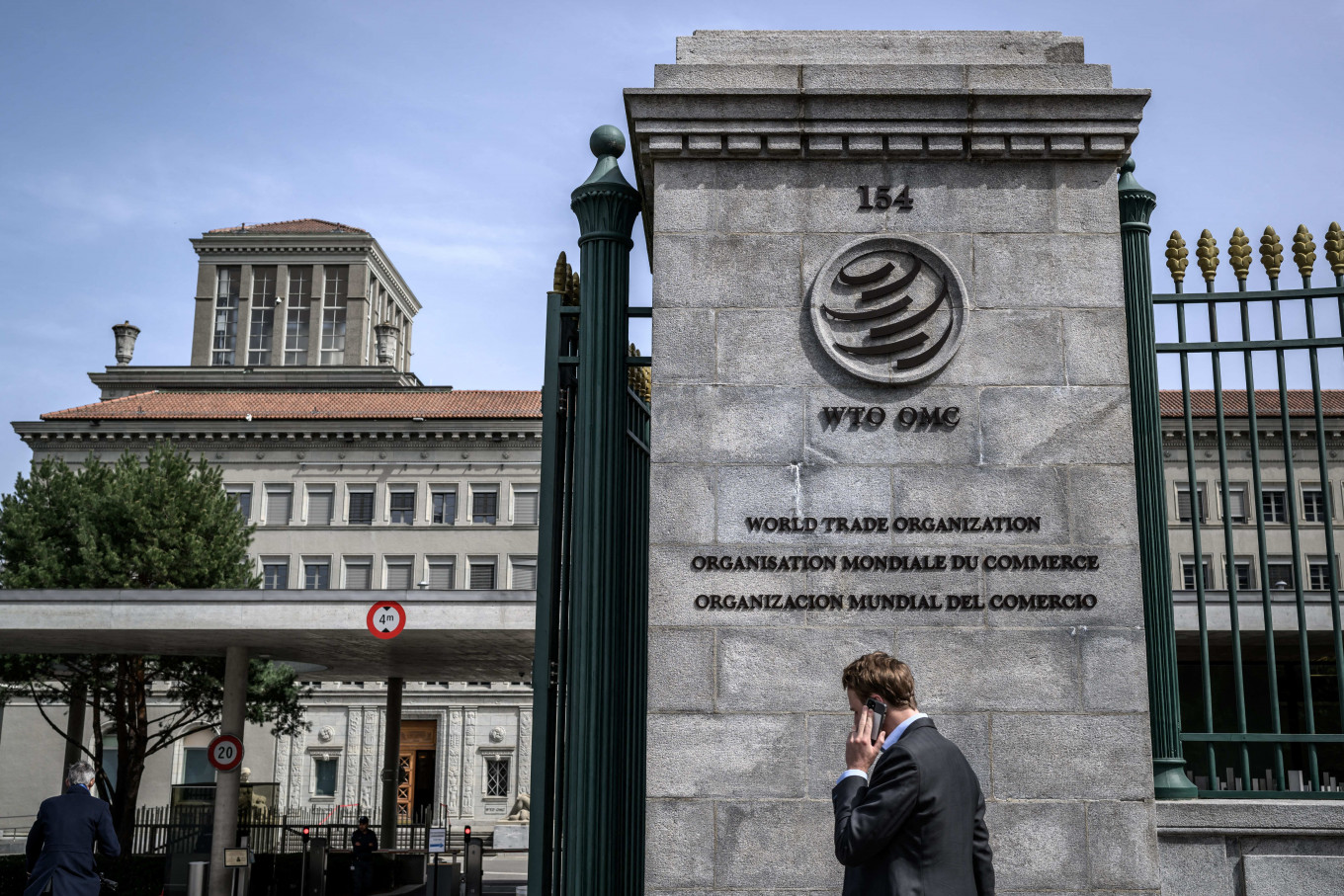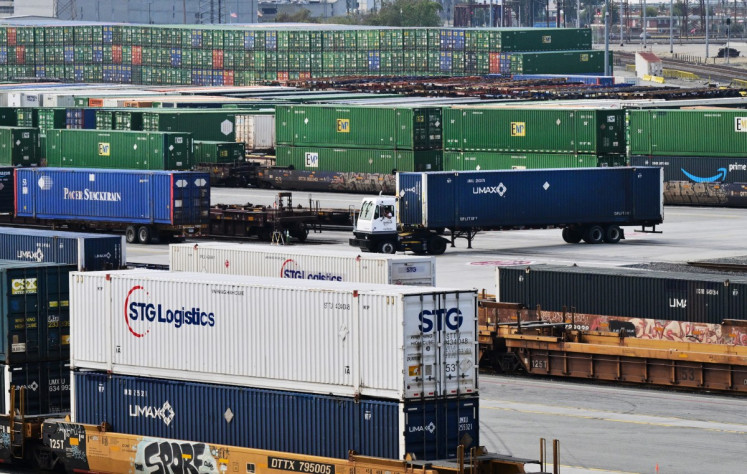Popular Reads
Top Results
Can't find what you're looking for?
View all search resultsPopular Reads
Top Results
Can't find what you're looking for?
View all search resultsWTO hikes 2025 trade growth outlook but tariffs to bite in 2026
Change text size
Gift Premium Articles
to Anyone
A
I-related goods and a surge in exports to the United States to beat President Donald Trump's tariff hikes boosted global merchandise trade growth this year, the World Trade Organization said Tuesday.
However, the picture is bleaker for 2026, the WTO warned, as the impact of those tariffs kicks in.
The WTO raised its forecast for trade volume growth in 2025 to 2.4 percent -- up from 0.9 percent in August -- and slashed its 2026 outlook from 1.8 percent to 0.5 percent.
"Global merchandise trade outpaced expectations in the first half of 2025, driven by increased spending on AI-related products, a surge in North American imports ahead of tariff hikes, and strong trade among the rest of the world," the WTO said, as it published its updated global trade outlook.
In an unusual move, the global trade body has revised its estimates several times this year due to uncertainties surrounding the new tariffs imposed by the Trump administration.
Since returning to office in January, Trump has slapped several waves of new tariffs on imports entering the United States.
His administration has imposed a basic tariff of 10 percent on all countries since April, with much higher rates for some economies.
- Measured reaction to tariffs -
"Countries' measured response to tariff changes in general, the growth potential of AI, as well as increased trade among the rest of the world -- particularly among emerging economies -- helped ease trade setbacks in 2025," WTO chief Ngozi Okonjo-Iweala said.
The WTO said artificial intelligence-related goods -- including semiconductors, servers, and telecommunications equipment -- drove nearly half of the overall trade expansion in the first six months of the year, rising 20 percent year-on-year in value terms.
Over those six months, "42 percent of global trade growth came from AI-related goods -- far out of proportion to their 15 percent share in world trade", Okonjo-Iweala told a press conference.
But the former Nigerian finance minister said trade resilience this year should not fool countries into "complacency".
"Today's disruptions to the global trade system are a call to action for nations to reimagine trade and together lay a stronger foundation that delivers greater prosperity for people everywhere," she said.
She noted that apart from a few countries, most WTO members have not imposed tit-for-tat tariffs on the United States "like it was in the 1930s" during the Great Depression, praising them for sticking to WTO rules.
- 'So much uncertainty' -
The report predicted that all regions will record weaker import performance in 2026 as higher tariff rates and heightened trade policy uncertainty bite.
Okonjo-Iweala said that looking ahead to 2026, "the fact is there is so much uncertainty it is hard to be conclusive".
The WTO's global GDP growth projection is 2.7 percent this year and 2.6 percent in 2026.
Services export growth is now expected to slow from 6.8 percent last year to 4.6 in 2025, and further down to 4.4 percent next year.










